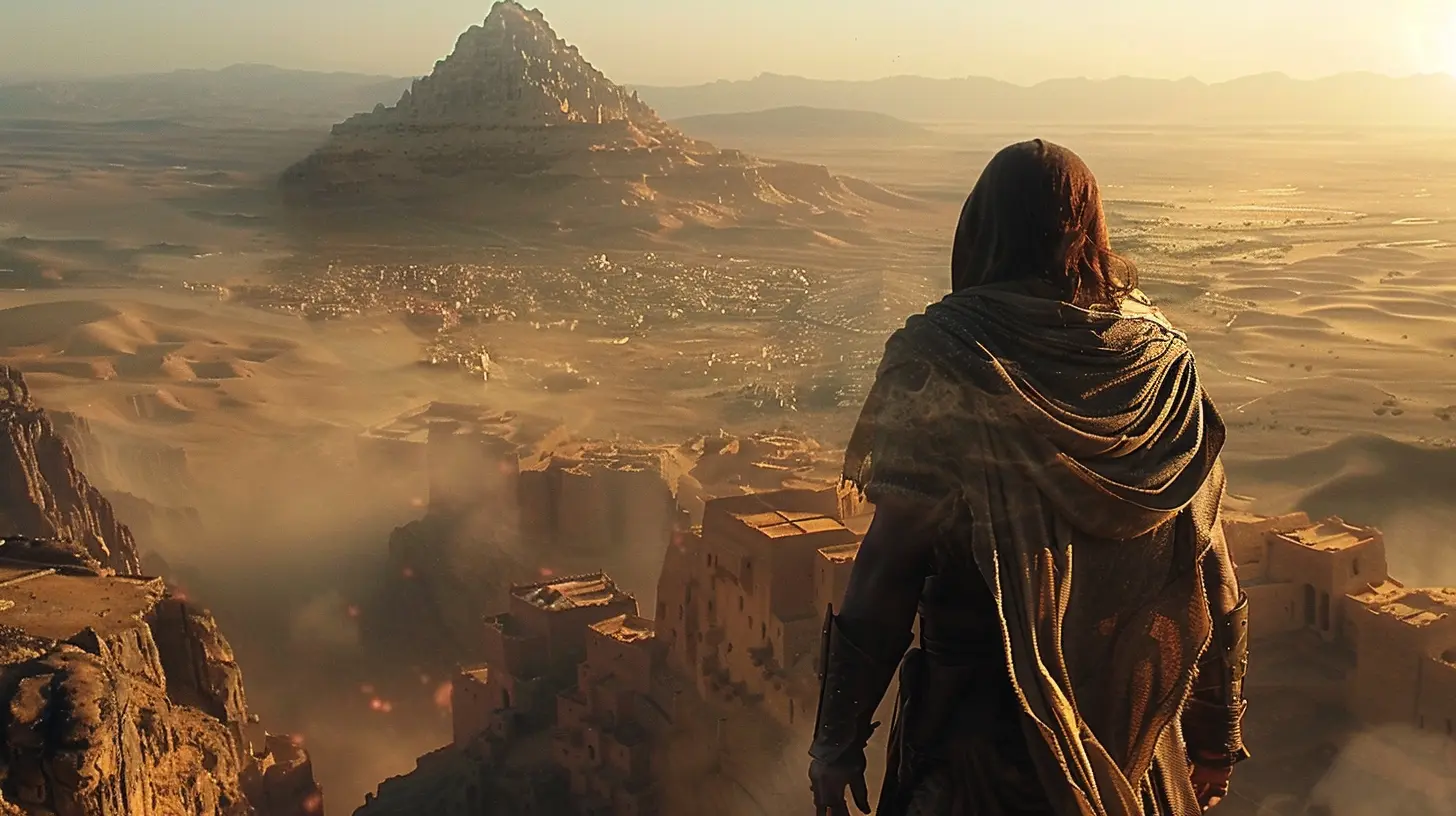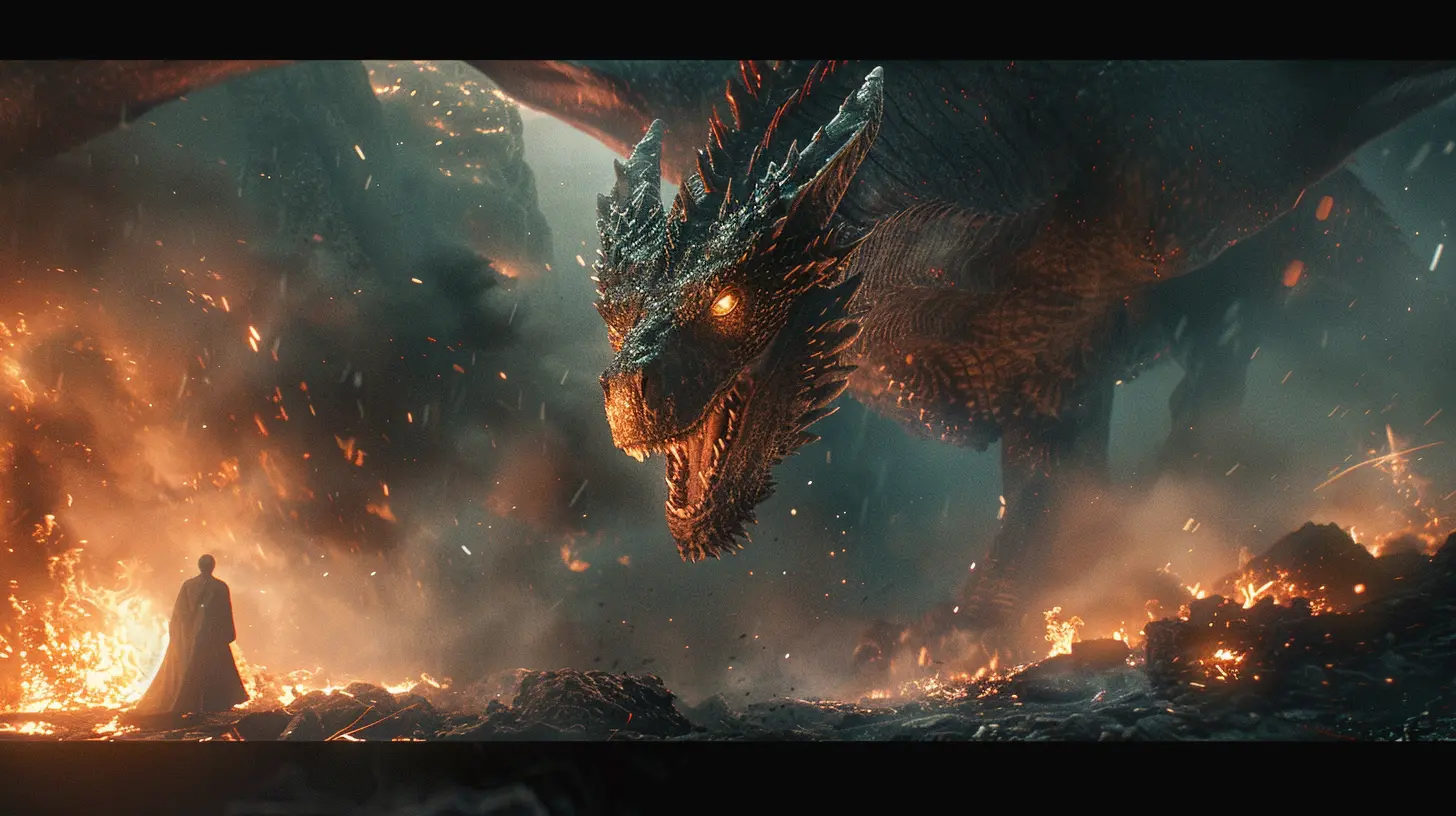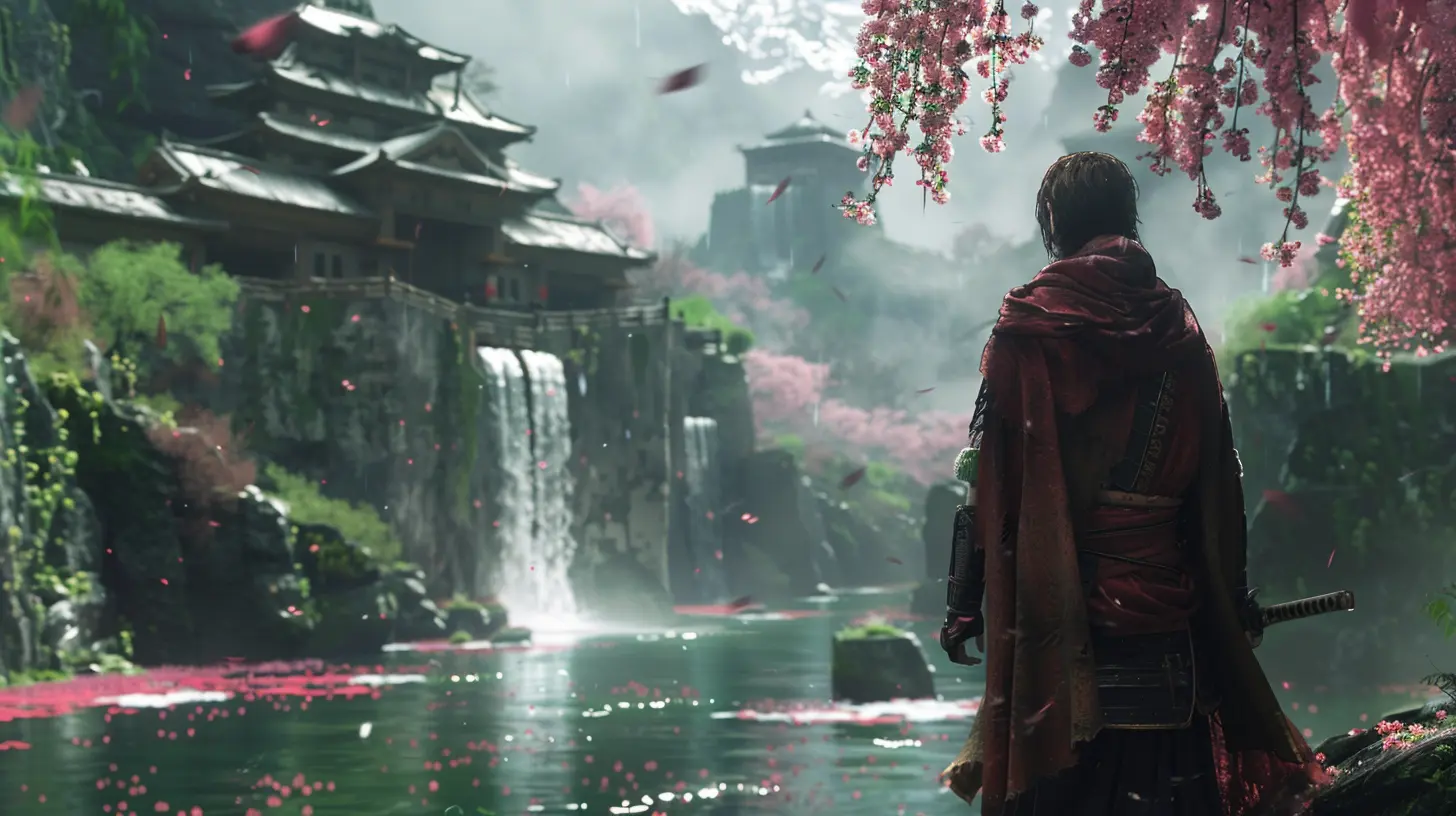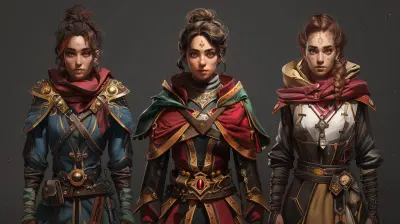The Comeback of Cinematic Game Trailers
11 September 2025
Remember those jaw-dropping cinematic game trailers that gave you goosebumps? The ones that made you pause, rewind, and watch them over and over again, even if they barely showed any actual gameplay? Yeah, they’re making a serious comeback — and in full glorious form.
In this article, we're diving deep into why cinematic game trailers are surging back into the spotlight, how they’re evolving, and what this means for gamers, developers, and the gaming industry as a whole. So grab a snack, and let’s talk trailers.
What Exactly Are Cinematic Game Trailers?
Before we get too hyped, let’s make sure we’re on the same page.Cinematic game trailers are high-production, movie-style previews of video games. They’re usually not made using the actual gameplay engine (though that’s changing too), and they aim to sell the story, tone, or vibe of a game rather than its mechanics. Think of them as Hollywood-style teasers for the gaming world — polished, packed with emotion, and visually impressive.
Remember trailers like the ones for Halo 3, Dead Island, or more recently, Cyberpunk 2077? Yeah, those were cinematic trailers — and they blew our minds.
Why Cinematic Game Trailers Fell Out of Favor
Let’s be real — there was a time when cinematic trailers got a bad rap. And for good reason.People started to get tired of being hyped up by beautiful cutscenes that didn’t reflect the actual gameplay. Gamers felt misled, like they were promised filet mignon and got a frozen pizza instead. Publishers cranked out overly dramatic cinematic trailers, only for the final product to be… meh.
That disconnect pushed players to demand more authentic previews. “Show us the gameplay!” became the rallying cry on message boards and in comment sections.
And slowly but surely, things started to shift. Studios leaned into in-engine footage. Developers started presenting longer gameplay demos. The era of transparency was here — and cinematic trailers faded into the background.
The Cinematic Renaissance: Why They’re Back and Better Than Ever
But now? The tide is turning. Cinematic trailers are cool again — and this time, they're doing it right. Here's why.1. Storytelling Is a Bigger Deal Than Ever
Games have evolved. We’re past the days when a cool mechanic or shiny graphics could carry an entire title. Today’s gamers crave narrative. They want rich worlds, compelling characters, and emotional stakes. And what’s a better way to tease a great story than a cinematic trailer?Let’s face it — a 30-second gameplay clip won’t tug at your heartstrings the way a beautifully rendered cinematic short will. Developers are using trailers to paint emotional landscapes before the player even picks up a controller.
2. Gamers Are Smarter Now
We’ve grown — mentally and digitally. Most of us can now easily distinguish between a gameplay trailer and a cinematic teaser. We know what we’re getting. We understand that cinematic trailers are more about setting the mood than giving a literal preview.And the best part? Developers have gotten more honest about labeling their trailers. If it’s CGI, they tell us. If it’s in-engine, they say so up front. That clarity has rebuilt trust — and made cinematic trailers more enjoyable again.
3. Technology Has Stepped Up
Modern rendering tools like Unreal Engine 5, Unity's HDRP, or proprietary engines have blurred the line between gameplay and CGI. Some cinematic trailers are now created entirely in-engine, meaning they’re much closer to what players will actually experience.Games like Hellblade II and The Last of Us Part II showcase jaw-dropping visuals even during gameplay. This makes cinematic trailers feel less deceptive, and more like a hyper-polished preview of what’s to come.
Memorable Modern Examples of Cinematic Game Trailers
Let’s nerd out for a second and talk about some recent trailers that absolutely crushed it.🌌 Star Wars Eclipse
Quantic Dream’s trailer didn’t show an ounce of gameplay — but man, it gave chills. From the haunting soundtrack to the rich Star Wars universe, it left fans wanting more. That's cinematic mastery.⚔️ Elden Ring
That dramatic reveal trailer? Pure fantasy gold. It set the tone, teased the lore, and featured a world-building depth that only FromSoftware can deliver. It was flashy, mysterious, and it worked.🎮 Dead Island 2 (Yes, It Finally Came!)
Years after its original iconic teaser, Dead Island 2 returned with a new cinematic trailer that brought back the humor and horror the franchise is loved for. The new trailer was slick, funny, and smart, pulling off a polished tone that resonated.Why Cinematic Game Trailers Still Matter
Even if you’re a gameplay-purist who skips cinematics, there’s no denying the unique value cinematic trailers bring to the table.They Hook You Instantly
Gamers have short attention spans — real talk. A cinematic trailer acts like a movie teaser: fast, flashy, and instantly engaging. They’re often the first impression a game makes. And first impressions count.They Tap Into Emotion
Gameplay trailers show you what you'll do. Cinematic trailers show you what you’ll feel.Emotion is what sticks — and cinematic trailers are experts at hitting those emotional beats. Whether it's heart-pounding action, gut-wrenching drama, or laugh-out-loud moments, these trailers are designed to connect on a visceral level.
They Build Hype Like Nothing Else
Cinematic trailers are shareable, rewatchable, and meme-able. They build a buzz that gameplay trailers just can’t replicate. Think of them as the teaser posters of the gaming world — designed to get people talking before release builds even exist.How Studios Are Evolving the Cinematic Formula
So what’s different this time around? Quite a lot, actually.Transparency is Key
Studios now make it clear: “This is a cinematic trailer. Gameplay coming soon.” This kind of honesty builds faith with fans, and it sets realistic expectations.Blending Cinematic with Gameplay
Some trailers now start with cinematic flair and transition smoothly into gameplay. It’s a hybrid style that feels premium and honest. Titles like God of War: Ragnarok and Horizon Forbidden West do this beautifully.Cinematics Enhance Branding
Let’s not forget — these trailers aren’t just for fans. They’re marketing tools. And a solid cinematic trailer can define a game's brand identity in seconds. Tone, music, art style — it all gets planted in your brain.The Future: Will Cinematic Game Trailers Replace Gameplay Ones?
Short answer: Nope. They’ll coexist — and that’s a good thing.Cinematic trailers are great for emotional storytelling and hype-building. Gameplay trailers are crucial for transparency and showcasing mechanics. In the best cases, they work together like peanut butter and jelly.
Imagine getting excited by a jaw-dropping cinematic teaser... then having your hype amplified by 10 minutes of gameplay walkthrough. That’s the sweet spot developers are aiming for — and it feels like we’re finally getting there.
How Gamers React to Cinematic Trailers Today
Let’s be honest — gamers don’t hold back their opinions. But overall? The reception of modern cinematic trailers has swung back to the positive side.As long as the rules are clear — “This is not gameplay footage, but it’s meant to get you excited” — the community is more open to appreciating the artistic and emotional depth these trailers offer.
Sure, there's still a few skeptics. But today’s cinematic trailers are more honest, more beautiful, and more narratively rich. And that makes a big difference.
Final Thoughts: The Beauty of Escapism
Games are more than mechanics. They’re about escaping into fantastic worlds, living other lives, and experiencing moments that stick with us forever. Cinematic game trailers remind us of that magic. They're not just ads — they’re stories in miniature, crafted to stir our imagination.So the next time a cinematic trailer drops, don’t be so quick to roll your eyes. Kick back, enjoy the ride, and let yourself feel something. After all, isn’t that what great games — and great stories — are all about?
all images in this post were generated using AI tools
Category:
Game TrailersAuthor:

Jack McKinstry
Discussion
rate this article
1 comments
Freya Kane
Cinematic game trailers are making a strong comeback, blending art and storytelling to captivate audiences. They effectively ignite excitement and anticipation, showcasing games as immersive experiences beyond traditional gameplay.
September 19, 2025 at 3:37 PM

Jack McKinstry
Absolutely! Cinematic trailers are redefining game marketing by emphasizing narrative and artistry, creating deeper connections with audiences and setting the stage for immersive experiences.


